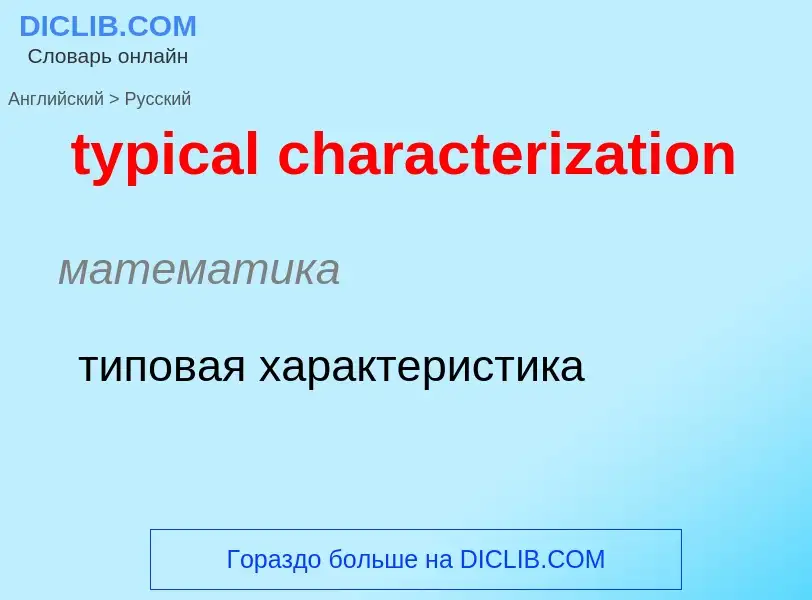Перевод и анализ слов искусственным интеллектом ChatGPT
На этой странице Вы можете получить подробный анализ слова или словосочетания, произведенный с помощью лучшей на сегодняшний день технологии искусственного интеллекта:
- как употребляется слово
- частота употребления
- используется оно чаще в устной или письменной речи
- варианты перевода слова
- примеры употребления (несколько фраз с переводом)
- этимология
typical characterization - перевод на русский
математика
типовая характеристика
математика
теорема характеризации
нефтегазовая промышленность
определение характеристик материала
[kæriktərai'zeiʃ(ə)n]
общая лексика
определение параметров
снятие характеристик
математика
характеризация
описание
логика
формализация
нефтегазовая промышленность
определение характеристик
существительное
общая лексика
характеристика
описание характера
словесный образ
литература
искусство создания характеров
искусство создания образов
['tipik(ə)l]
общая лексика
типичный
обычный, типовой
типический
типовой
характерный
Смотрите также
прилагательное
общая лексика
типичный
типический
символический
эмблематический
синоним
Определение
Википедия
Characterisation, or characterization, in conflict of laws, is the second stage of the procedure to resolve a lawsuit that involves foreign law. The process is described in English law as Characterisation, or classification within the English judgments of the European Court of Justice. It is alternatively known as qualification in French law.
It is used to determine the correct choice of law rules based on the circumstances of the case, primarily relating to matters of property. This is to reconcile differences between laws of different legal jurisdictions. The objective of characterisation is to determine the nature of the action brought by the defendant in order to determine what relevant rules of applicable law apply. This may result in applying laws which differ from the lex fori. Additional factors make this determination not necessarily a simple process as the incidental question and renvoi can make determining the initial point of reference difficult. The leading authority in England and Wales is Macmillan Inc v Bishopsgate Investment Trust plc (No 3) [1996] WLR 387


 effective refractive indexes and (b) absorption coefficients of the electronic chips.jpg?width=200)





